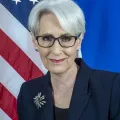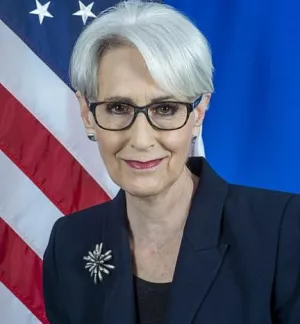
There’s a simple way to judge the Trump-Kim summit: hold any agreement to the standard the president set in criticizing the Iran deal.
While President Donald Trump prepares for his planned June 12 summit with Kim Jong Un, questions abound about the historic talks. When it comes to North Korea’s nuclear program, what is really on the table? What’s the United States willing to give up in return? And, most crucially, what would a successful deal with North Korea look like?
On that last question, responses vary. It’s easy to get swept up in the historic nature of major diplomatic negotiations, and to label them a success by the mere fact of their existence. But if you really want to know if the North Korea talks are successful, there’s a simple way to judge them: Hold President Trump to the standard he set in criticizing the Iran nuclear agreement.
As the lead U.S. negotiator in those talks, I was part of an effort to ensure and verify that Iran would never obtain a nuclear weapon.
It’s true that, as Trump has said, the Iran deal didn’t cover all of the problems the United States and other nations had with Iran. But if that’s the standard, then if a deal is struck with North Korea that covers only its nuclear weapons and the intercontinental ballistic missiles that could carry them to the U.S.—and leaves North Korea’s myriad other problems unsolved—Trump will have failed by his own metric.
Consider the arguments President Trump made in condemning the Iran deal.
“The Iranian dictatorship’s aggression continues to this day,” Trump saidon October 13, 2017. “The regime remains the world’s leading state sponsor of terrorism. … It develops, deploys and proliferates missiles that threaten American troops and our allies. It harasses American ships and threatens freedom of navigation in the Arabian Gulf and in the Red Sea. It imprisons Americans on false charges. And it launches cyberattacks against our critical infrastructure, financial system and military.”
According to the president’s Iran logic, North Korea must be forced to dismantle its shorter-range missiles that can reach Japan, as well as its forward-deployed conventional military that threatens South Korea—just as Trump criticized Iran’s “missiles and weapons that threaten its neighbors.” Trump’s agreement with Kim must bring an end to the proliferation of North Korea’s technology and know-how around the world, compel North Korea to eliminate any biological or chemical weapons in its possession, end its acts of terror, and halt criminal activities including cybercrimes, counterfeiting, drug-dealing and any other means now used to generate illegal revenue. Further, Pyongyang should be required to improve its abysmal human rights record by closing its gulags and labor camps. Failure to get North Korea do all of these things means that Trump will have flunked his own test.
Trump has argued that Iran got sanctions relief up front, including “many billions of dollars, some of it in actual cash.” That is not accurate. Iran was required to meet biting requirements, verified by international inspectors, before any sanctions were lifted. Under Trump’s standard, North Korea must meet all the concerns listed above before receiving any relief or economic assistance.
“The [Iran] deal’s inspection provisions lack adequate mechanisms to prevent, detect, and punish cheating—and don’t even have the unqualified right to inspect many important locations, including military facilities,” Trump said on May 8. As a matter of fact, his criticism was false: Under the agreement, access was mandatory once a short process of consultation was completed to confirm that a basis of concern existed.
But regardless of the inaccuracy of his claim, Trump set a standard for any North Korea agreement: Inspectors must have complete and total access to military sites—to any site—without regard to any process of consultation. Never mind that no country on Earth currently permits that; if Trump is consistent, he will demand North Korea agree to an “anytime, anywhere” inspection requirement.
The president has said that Iran should have perpetual restrictions on any civil nuclear program and that Iran should not be able to enrich uranium or produce plutonium under any circumstances. Under that standard, North Korea cannot have any civil nuclear program.
The president has claimed that the Iran deal should have been submitted as a treaty to the U.S. Senate and should have been agreed to only upon earning bipartisan support. By this logic, Trump should submit any potential North Korea agreement to a Senate vote and hold it to the same standard.
The president has repeatedly disdained the multilateral nature of the Iran deal, believing that bilateral agreements are best. But he is now seeing that a summit with North Korea can happen only with the help of President Moon Jae-in of South Korea, consultation and support from Japanese Prime Minister Shinzo Abe, and at least neutrality, if not support, from Chinese President Xi Jinping. And, as it turns out, sanctions are only effective multilaterally—particularly in the case of North Korea, because the United States has no direct economic relationship with Pyongyang.
The fact is that Trump had it wrong about the Iran deal. Diplomacy is never perfect; it is the practice of the art of the possible, as long as the possible increases our security and the world’s. In his negotiations with North Korea, if the president retreats from the standard he set for the Iran deal, his actions will justly be labeled hypocrisy and political opportunism.
Even so, as the diplomacy with North Korea moves forward, we will all hope for success while knowing that if the president uses his Iran yardstick, he will surely fail.
Sherman, Wendy. “How to Tell If the North Korea Talks Are a Success.” Politico Magazine, June 7, 2018


